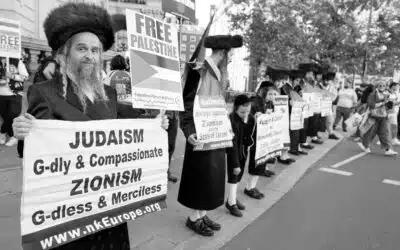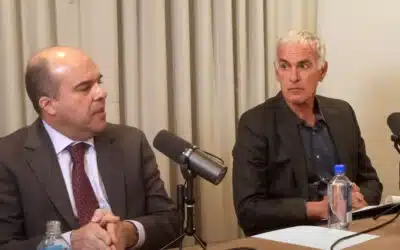Israel has agreed to a prisoner exchange with Hezbollah. Israel is seeking to obtain the bodies of two soldiers presumed dead, Eldad Regev and Ehud Goldwasser, who were captured in 2006, precipitating an invasion of Lebanon by Israel and war with Hezbollah. 159 Israelis were killed during that war, and more than 1,000 Lebanese.
In return for the release of its soldiers, Israel will free Lebanese prisoners. Reportedly, this would include Samir Qantar, who has been in jail since 1979 for his murder of three members of an Israeli family.
The cease-fire between Israel and Hamas continues, officially. But from the beginning it has been tenuous at best. Israel killed a member of Islamic Jihad in the West Bank on June 24, for which the group retaliated with several rocket attacks from Gaza. Israel pointed out that it never agreed not to engage in hostilities in the West Bank, only in Gaza, and emphasized that it would hold Hamas accountable for any violent actions by other militant groups.
Subsequent talks between Hamas and Islamic Jihad led to the latter group agreeing to abide by the cease-fire, to which it was not a party. Israel responded in turn by closing crossings into the Gaza Strip after a very brief respite during which Israel began slightly to ease its siege of the territory. Hamas criticized this move, pointing out that Israel agreed under the cease-fire.
As of June 27, according to the UN, Israel violated the cease-fire seven times, with Israeli Defense Force soldiers firing at Palestinian farmers across the border. An 82 year old man was injured in one incident of IDF firing.
On June 26, another rocket attack was launched against Israel, reportedly by the Al-Aqsa Martyrs Brigades, a group with ties to Fatah. Two mortar shells were fired into Israel the following day.
Hamas, however, remains committed to the truce. Prime Minister Ismail Haniyeah appealed to other Palestinian groups to honor the cease-fire. “We expect everyone to respect the agreement so that the Palestinian people achieve what they look for, an end to this suffering and breaking the siege”, he told reporters.
The New York Times opines that its agreements with Hezbollah and Hamas are part of “Israel’s Diplomatic Offensive”. The editorial praises Israel for talking with its enemies, contrasting this approach with that of the Bush administration, but adds that there are “clear risks” for Israel. Among the “risks” is that “Hamas may not respect or enforce the cease-fire; there have been almost daily violations.” The Times does not elaborate to note that Hamas has not been responsible for any of those violations while Israel has.
Prior to the Egyptian-brokered cease-fire with Hamas, Israel had announced its intention to wage a full-scale invasion of Gaza to bring about an end to rocket and mortar attacks and obtain the release of Gilad Shalit, a soldier captured by Gazan militants in June 2006.
Hamas has limited control and influence over other militant groups, but Israel says it will hold Hamas responsible for any attacks committed by other groups.
At the same time, Israel has already shown that it has no intention of applying any cessation of hostilities to the West Bank. Attacks such as that killing a member of Islamic Jihad and sporadic firing at farmers in Gaza seem designed to bring about a hostile response which would give Israel a casus belli to invade Gaza.
In the event of any such invasion, Israel will claim that it had exhausted diplomacy. Israel has made sure that the cease-fire is unsustainable. But it is beneficial as it would be used as political cover for future military action.
Coupled with Israel’s agreement to a prisoner exchange with Hezbollah, the New York Times calls this “Israel’s Diplomatic Offensive”. The exchange is Israel’s effort to wrap-up its 2006 war with Hezbollah before engaging in another war. The “Diplomatic Offensive” will more likely than not be followed in coming months by a military offensive.


